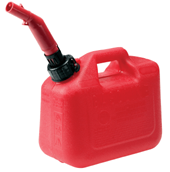


1
Just the text
2
The text with the questions
3
The text with the questions and the answers
We constructed it this way in order to reduce the
amount of pages you need to print.
We encourage you to print the
version with the answers just once, for your own reference.
We more strongly encourage you to use these texts online. Other than ecological reasons, practicing reading comprehension online is also much easier to grade, simplifies tracking of progress, adaptive to the level of the specific student, and increases motivation to practice with the students.
Register to ReadTheory and unlock the answers to all worksheets on the site.



To improve reading comprehension, first graders must have a strong foundation of reading skills. This includes being able to recognize the parts of a sentence, having phonological awareness, the ability to apply word analysis skills, and the ability to read with some measure of fluency and accuracy. These skills can be developed by using the following tips:
Students have the best chance of developing strong reading comprehension if they practice reading often – at least 20 minutes a day. Playing reading games is an excellent way to engage first graders in practicing reading.
Encouraging children to learn new words will do wonders for reading comprehension. The more robust their vocabulary, the better their reading comprehension skills will be.
For example, if new words are introduced in a passage, explain what the new words mean, provide examples, and help the child learn how to pronounce new words correctly. In doing so, you not only improve reading comprehension, but you also improve the child’s ability to make inferences about what they are reading.
You can also find hundreds of 1st-grade reading comprehension worksheets available for purchase at readtheoryworkbooks.com

Below are 10 reading comprehension worksheets and tests that are accurately measured to fit the 1st grade level.

Topic
A day at the park
Lexile level
90
Num of questions
6
Types of questions
Central message, identifying the author’s point of view, identifying the main topic and key ideas

Topic
The Park
Lexile level
250
Num of questions
6
Types of questions
lesson or moral, Identifying the author’s point of view, Identifying the main topic and key ideas.

Topic
Thank you Anna
Lexile level
310
Num of questions
5
Types of questions
Central message, Identifying the main topic and key ideas, Identifying the author’s point of view.

Topic
Karen’s Garden
Lexile level
250
Num of questions
5
Types of questions
Central message, lesson ,Identifying the main topic and key ideas, Identifying the author’s point of view

Topic
Gasoline
Lexile level
40
Num of questions
5
Types of questions
Lesson,Central message,Identifying the main topic and key ideas, Identifying the author’s point of view

Topic
Everyday
Lexile level
110
Num of questions
8
Types of questions
Identifying chronological order, Sequencing questions, Cause and effect comprehension ,Identifying the main topic and key ideas

Topic
Birds, Birds, Birds
Lexile level
140
Num of questions
5
Types of questions
Central message, lesson or moral, Identifying the main topic and key ideas, Identifying the author’s point of view

Topic
Ben’s Pet
Lexile level
250
Num of questions
6
Types of questions
Central message, Identifying the main topic and key ideas, Identifying the author’s point of view.

Topic
Ben’s Farm
Lexile level
250
Num of questions
6
Types of questions
Central message, Lesson, Identifying the main topic and key ideas, Identifying the author’s point of view

Topic
Balls for Sports
Lexile level
250
Num of questions
6
Types of questions
Central message, Lesson, Identifying the main topic and key ideas, Identifying the author’s point of view

Check out our NEW collection — created by AI, thoughtfully inspired and refined by teachers.